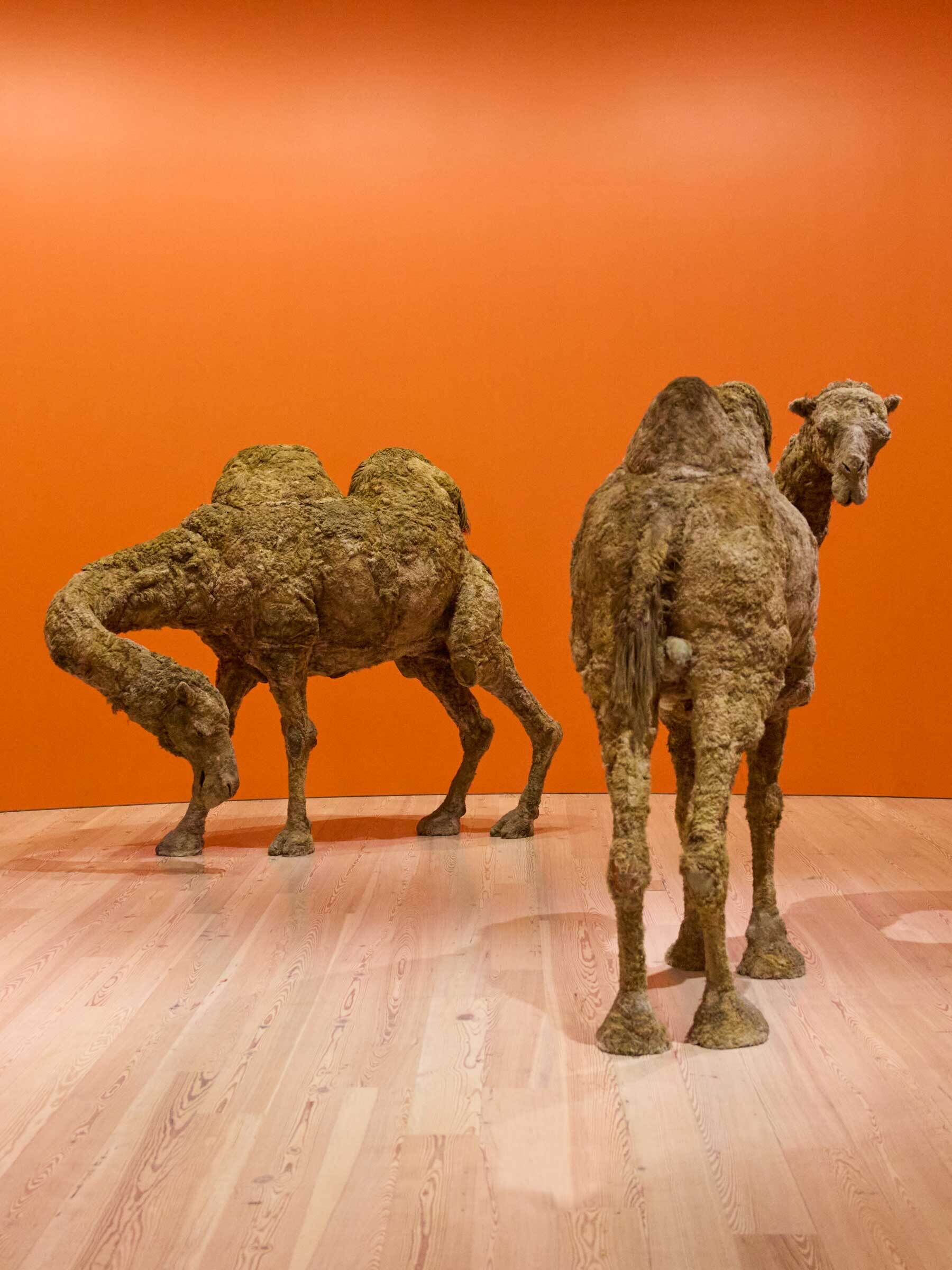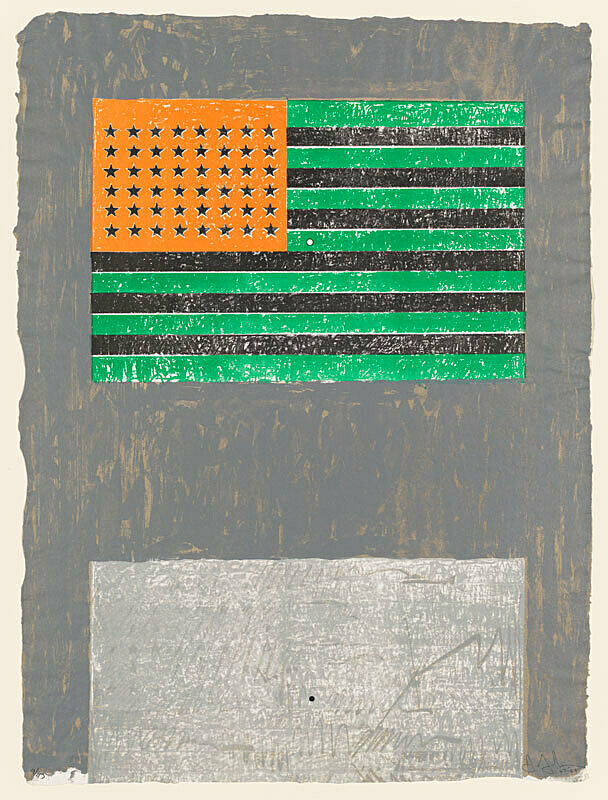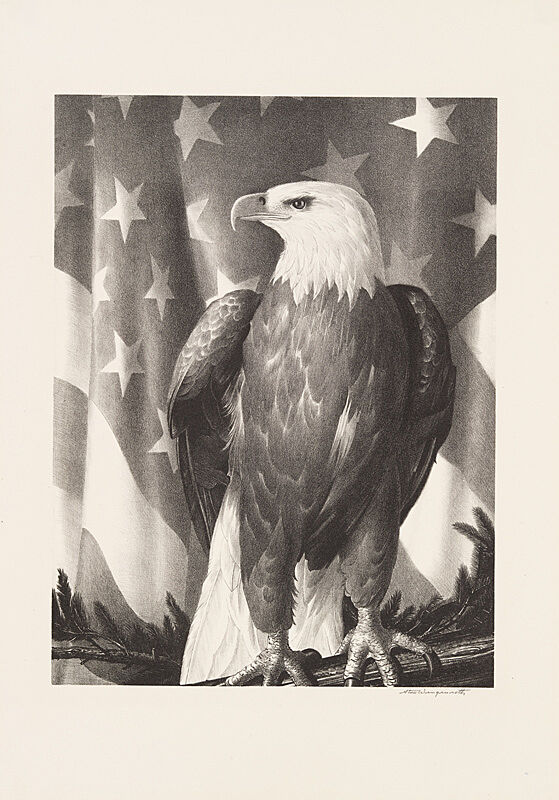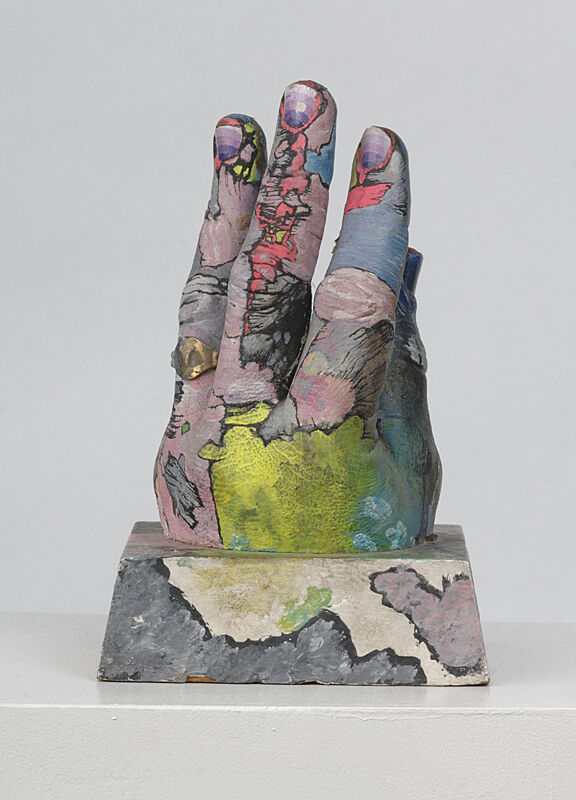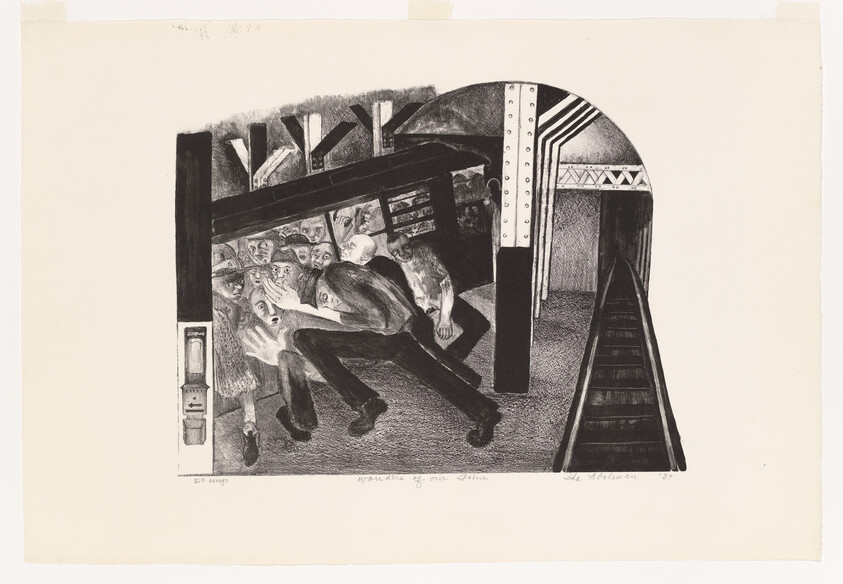Paul Thek
1933–1988
Paul Thek was one of the most prescient artists to emerge during the 1960s, yet his work remained largely unrecognized for decades. Having begun his career as a painter, Thek traveled in 1963 with the photographer Peter Hujar to Palermo, Italy, where he visited the Catacombs and observed the accumulations of skeletons there, openly displayed in boxes. A lapsed Catholic, he found the sight unforgettable, and the trip precipitated a turning point in his art.
On his return to New York, however, Thek was confronted with a sculptural practice completely at odds with his thinking about the body and mortality. Interest in the figure and materiality had been superseded by the industrially produced sculpture of the prevailing Minimalist style. In reaction Thek embarked on a series of works he later named Technological Reliquaries, sculptures that directly imitated body parts, which he encased in plexiglass boxes. Untitled is a replica of a tubular section of flesh, with what looks like blood and bodily fluids oozing out at one end. A facsimile of fat and skin encases the surface, covered with nylon-monofilament “hairs” that protrude through the chartreuse container. “My work is insulting to our sense of the humane,” Thek wrote of these pieces, and “insulting to art history in terms of subject matter, the way some of the abstractionists insulted history in a formal, plastic way.” Thek lived in Europe for much of the 1970s, organizing collaborative theatrical installations. The impact that his Technological Reliquaries and installations had on sculptors such as Mike Kelley and Robert Gober in the 1980s has led to the posthumous recognition of Thek’s art.
Introduction
Paul Thek (November 2, 1933 – August 10, 1988) was an American painter, sculptor and installation artist. Thek was active in both the United States and Europe, exhibiting several installations and sculptural works over the course of his life. Posthumously, he has been widely exhibited throughout the United States and Europe, and his work is held in numerous collections including the Hirshhorn Museum and Sculpture Garden in Washington, DC, the Centre Georges Pompidou, Paris, and Kolumba Museum - the art museum of the archdiocese of Cologne.
Wikidata identifier
Q1346819
Information from Wikipedia, made available under the Creative Commons Attribution-ShareAlike License . Accessed February 12, 2026.
Introduction
American sculptor.
Country of birth
United States
Roles
Artist, installation artist, media artist, painter, photographer, sculptor
ULAN identifier
500097373
Names
Paul Thek
Information from the Getty Research Institute's Union List of Artist Names ® (ULAN), made available under the ODC Attribution License. Accessed February 12, 2026.

